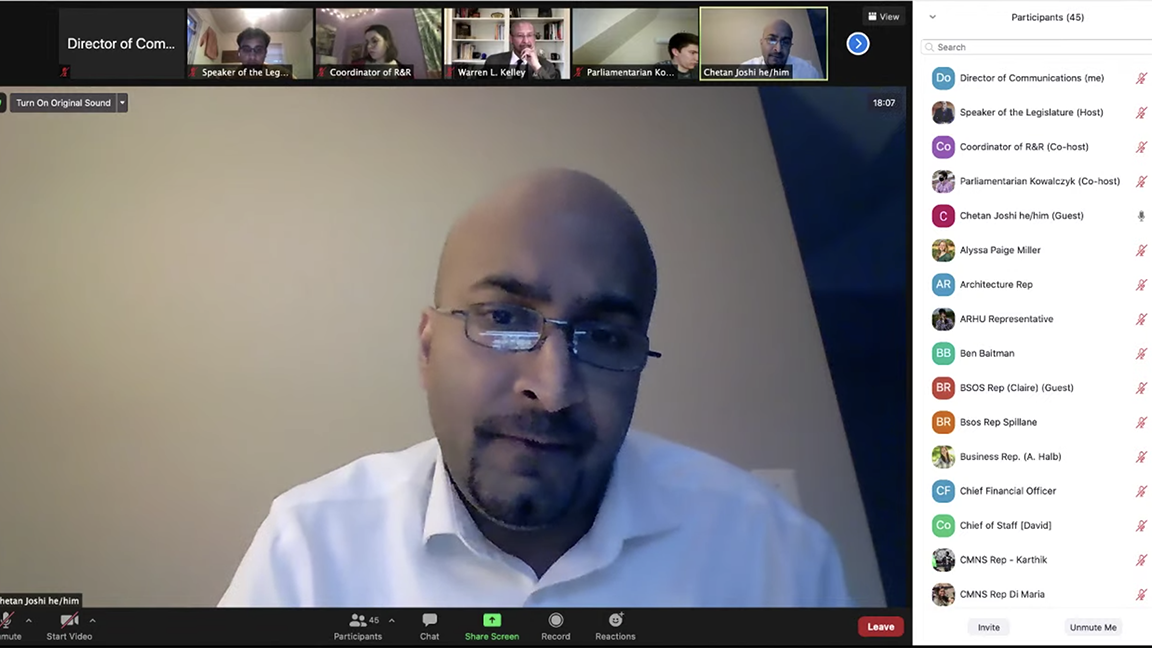Dr. Chetan Joshi, director of the University of Maryland’s Counseling Center, discussed racial disparities in mental health and mental health support initiatives in the works at this university during an SGA meeting Wednesday.
Joshi’s meeting with the Student Government Association followed the submission of a slate of new mental health procedures submitted to university President Darryll Pines for approval. For many students, disparities in mental health resources for minority students were a main concern.
There are multiple barriers marginalized students experience when seeking help for mental health services, Joshi said. Having a conversation with student leaders is essential in understanding and meeting their mental health needs.
“Student voice is critical,” Joshi said. “That’s basically what we’re trying to ensure that we take into consideration.”
SGA legislators emphasized the significance of having a conversation regarding racial disparities in mental health and advocating for more resources.
Another concern SGA legislators expressed is the role the police play in responding to mental health crises. Joshi explained that police are involved in all mental health transports. Sometimes, the transport will happen with the student in handcuffs, he said.
Being handcuffed during a mental health crisis can be traumatic, he said, especially for some students from marginalized groups.
[SGA votes to sponsor weeklong event for eating disorder awareness]
The university is working toward a system in which both the mental health clinicians and police will be called to a crisis and help the student accordingly, he said. If the situation doesn’t call for police intervention, and there is no imminent threat, then the mental health clinicians will respond to the issue, he said.
Transfer student representative Kenyatta Thomas asked whether police would ever be completely removed from mental health crisis response teams.
Joshi said he is hesitant to remove police from the process because if a student is imminently at risk of physical harm, they need the police to be able to respond.
The goal for the implementation of the new initiatives is about a year to 18 months, Joshi said, which might even be optimistic due to the challenges associated with setting up systems and hiring people.
“The goal is always to try to do things as quickly as possible but also, at the same time, ensuring that they are being done in a thoughtful, well-considered manner,” Joshi said.
The pandemic has allowed the university to address mental health more and improve their resources on the campus, Joshi said.
“In many ways it’s been stressful … but in other ways, it’s really been very positive in terms of the focus on growing and development and increasing mental health resources on campus and what the future of mental health resources on our campus is going to look like in the coming years,” he said.
[UMD student affairs VP Patty Perillo talks vaccines, fall semester outlook at town hall]



